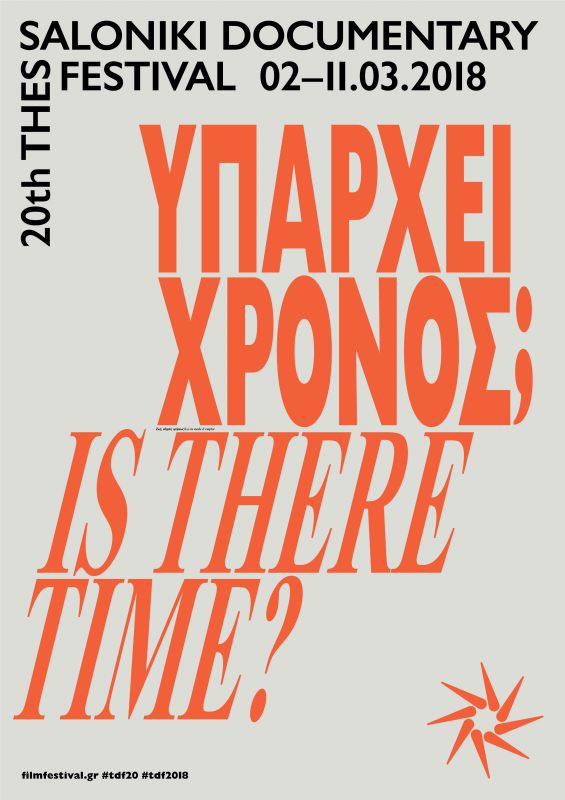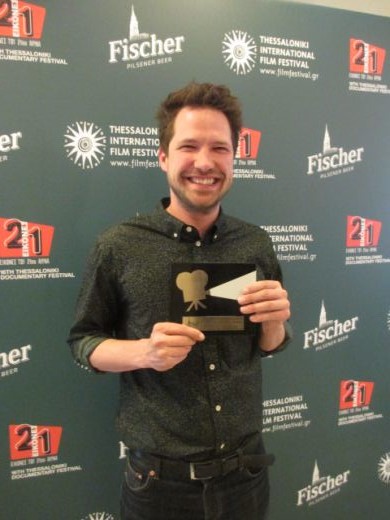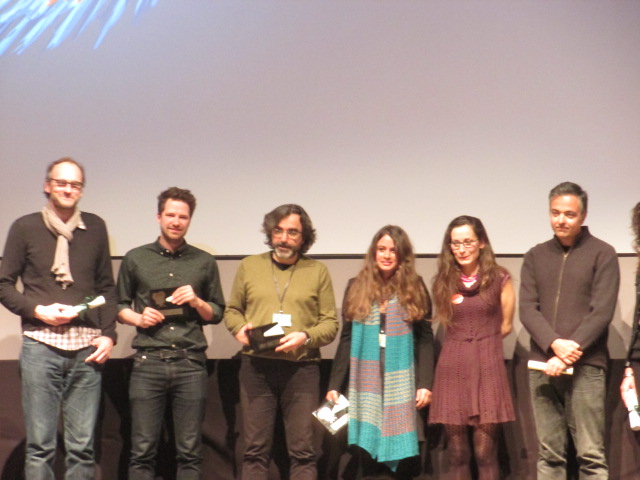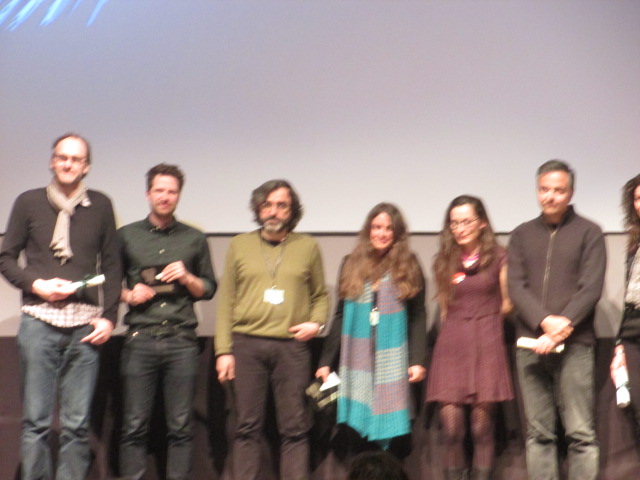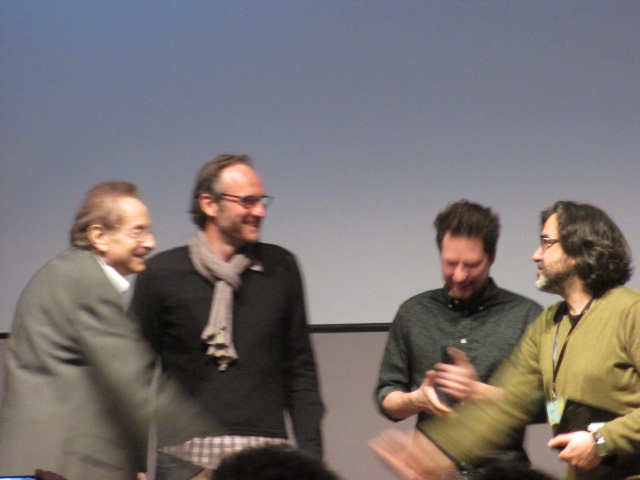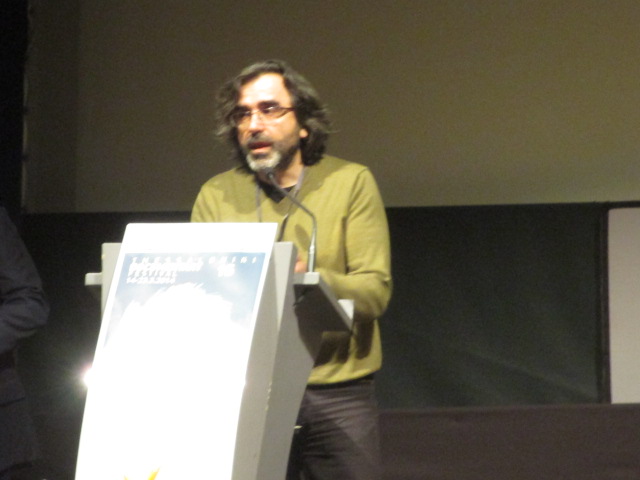|
|
||
|
Pro Tools
FILMFESTIVALS | 24/7 world wide coverageWelcome ! Enjoy the best of both worlds: Film & Festival News, exploring the best of the film festivals community. Launched in 1995, relentlessly connecting films to festivals, documenting and promoting festivals worldwide. Working on an upgrade soon. For collaboration, editorial contributions, or publicity, please send us an email here. User login |
Interview with Amir Bar-Lev, THE TILLMAN STORYInterview with director Amir of THE TILLMAN STORY (USA, 2010). First, read more about the film here: http://www.fest21.com/en/blog/vanessa_mcmahon/the_tillman_story_q_and_a
ME: First of all I want to congratulate you on your film which to me is very thought-provoking in terms of the questioning of what makes a myth. AMIR: Well, thank you. ME: So, how did you start to make this film and when? AMIR: Well, we started in 2007 which was right around when those congressional hearings were happening and it took us three years. ME: This is a question from my assistant, Ellie… ‘Were there any testimonies from any of the soldiers that were responsible for the friendly fire’? AMIR: Well, the testimony that those soldiers did was in the film. You know, when you see those excerpts… ‘I was excited…I wanted to be in the firefight’. We didn’t have interviews because they wouldn’t consent to an interview but their testimony is known and it’s available. ME: So, it really was an accident right? Or do you think there could have been intent? AMIR: It was an accident. I mean, I’m just speaking from my own perspective after three years of working on it. It is an accident. It was a horribly negligent accident and the punishment was not sufficient because the punishment was the same punishment as if you forgot to clean your weapon. But it’s very implausible that it was a fog of war and it’s very implausible that it was an assassination. ME: I just wanted to talk about the paradox of the film. For example, the fact that Pat was the stuff of myths and yet became a myth for all the wrong reasons. Can you explain that more for us please? AMIR: Okay, two separate things… Number 1) There’s something in rhetoric where when you’re having an argument with somebody the strategic maneuver, almost like syntax, is to take the argument and flip it on its head and as soon as you can turn them into the opposite of who they are. It’s something like how the right in America says ‘the liberal media’ which a total fucking crazy thing to say, you know, because if anything it’s a conservative media. But that’s how they keep the argument on that side of the line instead of it being in the middle. Right? An example with the Tillmans is when Dannie Tillman did a column where she talked about General Mc Crystal’s firing. And in the column she said (after the film came out): “After Mc Crystal was fired after the Rolling Stone interview all kinds of people came to me and asked me for a statement. I didn’t want to give them a statement because I didn’t want to sound like I said ‘I told you so’.” So, the editorial board of the LA Times said: “We want to shorten a little bit of what Dannie wrote because it’s too long. So, they cut out that paragraph. So the headline read, ‘I told you so’.” So, we’re talking about the way we act when we’re turning people into the opposite of who they want to be. So, it’s not that Pat’s not a hero. It’s just that they turned him into the wrong here. And the family never wanted to make him not a hero…They wanted to make the heroism to be about who he actually was… about the truth.. ME: Can you talk a bit about myth itself? Wouldn’t you say that all myths are based on true and fictitious elements? AMIR: Yes, number 2) I think the idea of a myth, by its nature, is problematic in a way because it’s one thing to praise someone. What we try to do is make Pat Tillman into someone you might admire, like your friends…He was a guy who was a human being with contradictions, faults, but also a very admirable person. And there’s something about the way we put people on such a pedestal that suddenly it becomes mythic. Right? And then they suddenly lose their humanity. And it’s a way of insulating ourselves from the challenge of being like they are. Because you could just say, ‘well, Pat Tillman was Pat Tillman. He was larger than life’. Well, no, he wasn’t larger than life. In fact, nothing is larger than life. ME: I disagree there. A myth is larger than life. Pat’s not alive anymore but his story is. AMIR: Yes, but let’s make the story accurate and make it something we can connect with like a great novel or a great film or something… Films are not about something that feels like heightened reality but it’s like, oh my god, that is reality.. that’s ineffable reality.. right? ME: Why do you think we create such myths? Would you say because we have a lack of myths today? I mean, we have literalized myths in the form of religion but I don’t want to there.. AMIR: Well, I think that human beings period, West and East, have an innate desire to imagine something transcendent outside of the normal quotidienne life. I mean, myths like when people say, ‘oh, you should’ve been here. It was just like a movie’ is a way of saying ‘what happened was sublime’. It was outside of normal life and so they say that about 9/11. And it’s one of the reasons why if people are honest with themselves there was an enjoyment in 9/11. There was a kind of a relishing of the tragedy. Just in the same way, like if you were in highschool and let’s say someone died or something horrible happened and all the people are crying… You know that on one hand the people are crying but at the same time they’re relishing it… You know, because suddenly it feels like they’re connecting with something more real than the reality. So, that’s disgusting to the family. Because the family is like, ‘if you want to grieve with us, then grieve, because of the loss. But if you want to just take a maudlin enjoyment in it then go fuck yourself’. Right? Like Pat’s dad said, ‘there’s a fine line between celebrating someone’s life and celebrating someone’s death’. And that’s what they felt. They felt that as a country- you could see in the stadium- we were all taking a kind of maudlin enjoyment in it. The same way people say, ‘I’ll never forget where I was the day of 9/11’ or whatever. It’s a cheap thrill of enjoying tragedy because it seem to connect us to something bigger than ourselves. ME: But is that just a cheap thrill or is it that nothing in life can be all good? I mean, you say the word ‘sublime’ which is great because whether it’s bad or good it’s bigger than us. AMIR: Yeah, but Pat Tillman wasn’t beyond us. He was a living breathing human being who died in a real way and lived in a real way. ME: You could say the same thing for all myths… Marilyn Monroe, JFK, Martin Luther King …they were real people. AMIR: Right but let’s talk about Kennedy. We put him on this pedestal but when we find out he had affairs and stuff… Martin Luther King had affairs as well…It sadly becomes this thing where ‘god, he’s a human being.’ Well, why did we ever expect them not to be a human being and why does heroism have to be at the expense of his humanity? Why can’t they be one and the same? Because then you’d have more people trying to be like Martin Luther King when they grow up if you just treat him like a human. And more people like Pat Tillman if the Pat Tillman they were taught about was the real Pat Tillman. You know? That’s what we want. We want to teach kids there’s something that this guy did that’s of value and that we should aspire to be like him. I mean, people talk about Pat Tillman like he’s Jesus Christ. When I used to call people up, they would say things like ‘Pat died for the rest of us’ and stuff like that. I mean, all that stuff is very much human nature but it doesn’t mean we shouldn’t challenge ourselves to not do it. ME: Well, ultimately it’s a battle between the real and the ideal and I think I want to congratulate you because if a film can spark this kind of dialogue then you’ve done a great job. I mean, we could just keep talking about this subject.
AMIR: Well, thank you very much. Your questions were good. Why don’t you come with us and have some drinks with my wife and friend. So, let’s go.
Thanks Pat. Great film! Written and transcribed by Vanessa McMahon March 30, 2011 photo from film. Pat (left) with his brother 31.03.2011 | Thessaloniki's blog Cat. : America Assistant Contact Details Director Ellie General George Tillman, Jr. http://www.fest21.com/en/blog/vanessa_mcmahon/the_tillman_story_q_and_a Interview with Amir Bar-Lev Jesus Christ LA Times Marilyn Monroe Martin Luther King Mc Crystal Military Military personnel Pat Tillman Pat Tillman Person Career Propaganda in the United States Quotation the LA Times THE TILLMAN STORY United States Vanessa McMahon March You Got to Move
|
LinksThe Bulletin Board > The Bulletin Board Blog Following News Interview with IFTA Chairman (AFM)
Interview with Cannes Marche du Film Director
Filmfestivals.com dailies live coverage from > Live from India
Useful links for the indies: > Big files transfer
+ SUBSCRIBE to the weekly Newsletter Deals+ Special offers and discounts from filmfestivals.com Selected fun offers
> Bonus Casino
User imagesAbout Thessaloniki Mcmahon Vanessa Mcmahon Vanessa Vanessa McMahon Covered the 13th and 14th, and 16th edition. Through its tributes, it focuses both on discovering filmmakers with a unique cinematic point of view, and on the internationally recognized for their contribution to documentary. Contributions from Buno Chatelin http://tdf.filmfestival.gr/default.aspx?lang=en-US&loc=6&page=760 View my profile Send me a message My festivalThe EditorUser contributions |



















